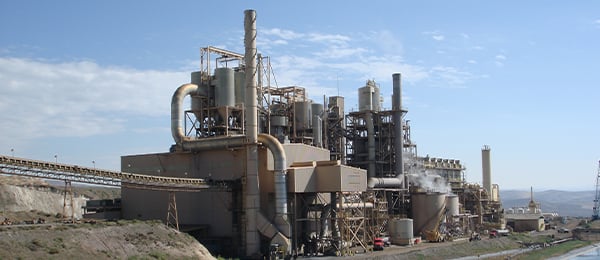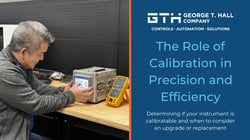Blog

5 Challenges Facing Mining Operations and How Working with the Right Control Systems Integration Partner Can Make a Big Difference
Insights from the Field – MMM Part 1
Aging Infrastructure
Active MMM operations continuously process with limited planned downtime scheduled to maintain existing plant equipment. This level of production combined with the incredibly high cost of downtime often makes upgrading obsolete, but currently functional, equipment a difficult decision. That is, until it breaks and causes unplanned downtime. Unplanned control system failure without readily available replacements creates enormous losses in production, often greatly surpassing the initial cost of modernization.
The Cost of Downtime
Unplanned downtime and lost production plague everyone, but certainly not equally. A recent survey of 72 major multinational industrial and manufacturing companies revealed that MMM and other heavy-industrial companies lose 23 hours/month, equating to 1.2 million hours a year across the sector. At $187,000/hour, this totals $225 billion annually. Much of this downtime can be prevented by having access to the right experienced technical resources to help identify unsupported hardware and software. These resources should also have a proven track record of providing turnkey upgrade solutions.
Labor and Technical Support
Due to the remote nature of mine sites, skilled labor retention and the distances involved in sourcing outside technical support can present real challenges to streamlined operations. Quite often, site-specific knowledge is not well documented and only possessed by a few key personnel.
Working in a Highly Technical and Automated Field
The mining industry uses incredibly technical and streamlined manufacturing processes that rely heavily on complex automation and connected operations. Given the size and scale of a typical operation, detailed workflows and procedures should be standardized with emphasis on constant improvement. Real-time tracking of mobile resources and critical process equipment health must be standard practice to minimize operation disruptions.
Safety and Security
Workplace safety and security are constantly a priority at mine sites, and for good reasons. There is no shortage of caustic, combustible or hazardous materials at a mine site. Couple that with massive moving equipment and you can see why safety is number 1. Industry-specific required training such as that required by the Mine Safety and Health Administration (MSHA) only scratches the surface of the challenges involved in ensuring an incident-free, but efficient, worksite. Therefore, it is critical that outside partners understand the unique challenges and regulations. Additionally, in terms of security, the need for hardening, segmentation, and protection of the onsite control networks is becoming ever more critical as cybersecurity incidents continue to rise.
Insights from the Field – MMM part 2
Identifying a strong local partner to help address these types of challenges can be a difficult task, but there are a few key distinguishing characteristics to look for when comparing alternatives.
Specific Knowledge and Experience
Does the integrator have a long history in the MMM segment with successful reference projects? Do they offer diversity with other industry experience? This may be important because having a partner with experience in a variety of industries can result in cross-pollination of solutions, best practices, and engineering expertise. While broad experience is important, it is also crucial to determine if they know your specific industry. Having an experienced partner who is familiar with plant processes and has managed similar projects in the past minimizes risk and reduces time spent utilizing facility personnel to manage and oversee automation projects.
Integrator Core Capabilities
Identifying the right partner can provide broad expertise over many highly technical domains. What level of system solution diversity can you expect from a chosen integrator? Are they limited to PLC and SCADA programming? Can they support instrumentation and telemetry? Are they experienced in combustion controls and burner safety? Can they fabricate UL rated control panels locally? Do they have a staff of dedicated technicians and engineers ready to provide onsite emergency support? Do they have dedicated PMP certified project managers to handle coordination and ensure the project stays on schedule?
Industry Certifications
Does the integrator have staff that holds industry-standard certifications such as CSIA, UL508/698, ISO9000, MSHA, ISA, CSI, and PMP? A great place to start when evaluating system integrators is with CSIA certified member integrators. CSIA certified members are vetted through an application process, adhere to industry best practices, and have completed a certification process that includes passing an extensive audit against CSIA best practices.
Vendor Agnostic
A key distinction between manufacturer engineering services and an independent system integrator is the ability to evaluate the best solution honestly and objectively for the challenge at hand. Can the integrator outline the values and drawbacks of competing similar products to streamline the decision-making process? Can you count on them to readily source a variety of materials and be ready to recommend alternatives? Do they act first as a trusted partner, then as a vendor?
Vendor Certifications
Does the integrator hold registered or certified status with the manufacturers they support? Each manufacturer requires a rigorous vetting of integrators to achieve partner status, typically through documented training and a broad history of verified project successes. These partners typically have exclusive support contracts that allow them priority support as well as in-house resources not available to other firms. These certifications provide an easy way to verify the integrator possesses the tools and proficiency with the solutions they provide.
Operating in a technically and physically demanding field like the MMM industry requires the right resources to maintain current production while simultaneously introducing new technologies to improve efficiency. These efforts require tremendous coordination and a team of knowledgeable and experienced personnel. Working with an established and proven system integrator such as George T. Hall can immediately provide a deep pool of specialized objective knowledge and local support to any operation. Please contact us to discuss any questions or concerns you may have regarding your process control systems used in your MMM operations.
RELATED POSTS
Determining if your instrument is calibratable and when to consider an upgrade or replacement
In the rapidly evolving world of controls and automation, efficient design and manufacturing processes...




